(Study) “Is My Phone Listening to Me for Ads?” A Targeted Ad Is 28% More Likely to Make Gen Z Dislike the Brand
Published on: 05 Jan 2023 | Author: Jorge Uceda

Published on: 05 Jan 2023 | Author: Jorge Uceda
For brands, January is an important month—it’s the ideal month to kickstart targeted advertising and get the sales engine running. According to the MasterCard SpendingPulse report, January 2022 was a win for almost all retail sectors: online sales grew 10.4% year over year. With the number of platforms increasing, ad formats evolving, and engagement strategies emerging… users have come to ask themselves, “Is my phone listening to me for ads?“
In fact, a study by YouGov showed that 66% of people have noticed receiving targeted ads for a product online “after having talked about it in person.”
It probably happened to you over the holiday season: you mentioned a product, and all of a sudden, an ad appears in your social media. Or a family member who turned their phone to you and, with a surprised look, said, “Look, it’s definitely listening to me!”
This begs the question: what impact therefore do these targeted ads have on the trust of a consumer brand? Another study by Consumer Reports showed that individuals are today more aware of the security and privacy risks associated with their digital footprint, and have modified their behaviour accordingly.
At Sortlist, we decided to survey 500 users in 6 different countries to find out how targeted ads, and the brands behind them, are perceived, even when people think their devices are listening to their conversations.
Our latest survey reveals that users are 7 times more likely to perceive a brand targeting them with ads negatively if they are privacy-focused. They don’t like thinking you listen to them.
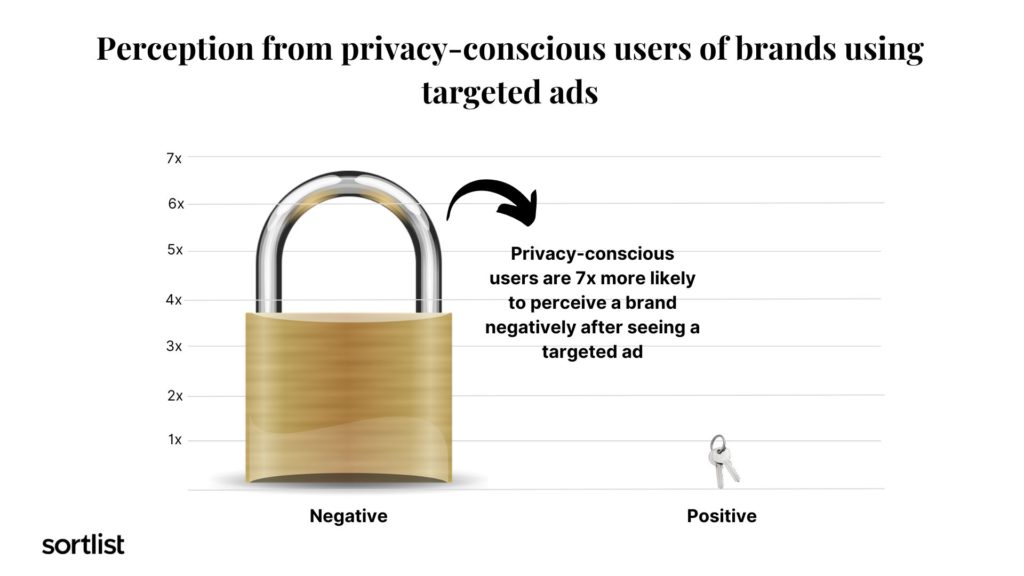
Additionally, the biggest reaction that users have towards targeted ads is a negative one: 37.4% feel their privacy is violated every time they are targeted by ads so accurate, it seems their phone is listening to them.
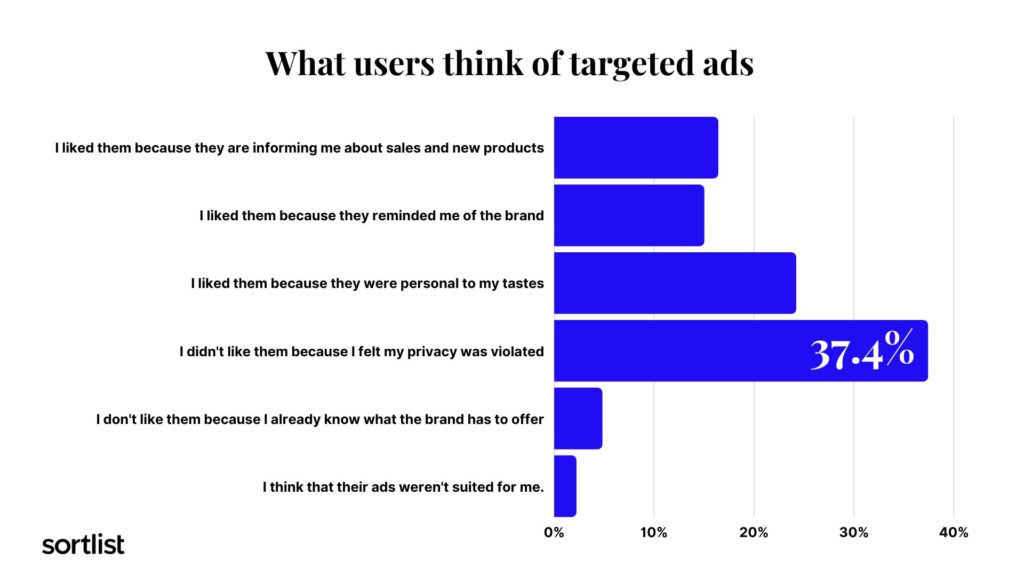
In general, privacy-minded users are almost 4x less likely to purchase from a targeted ad in the future.
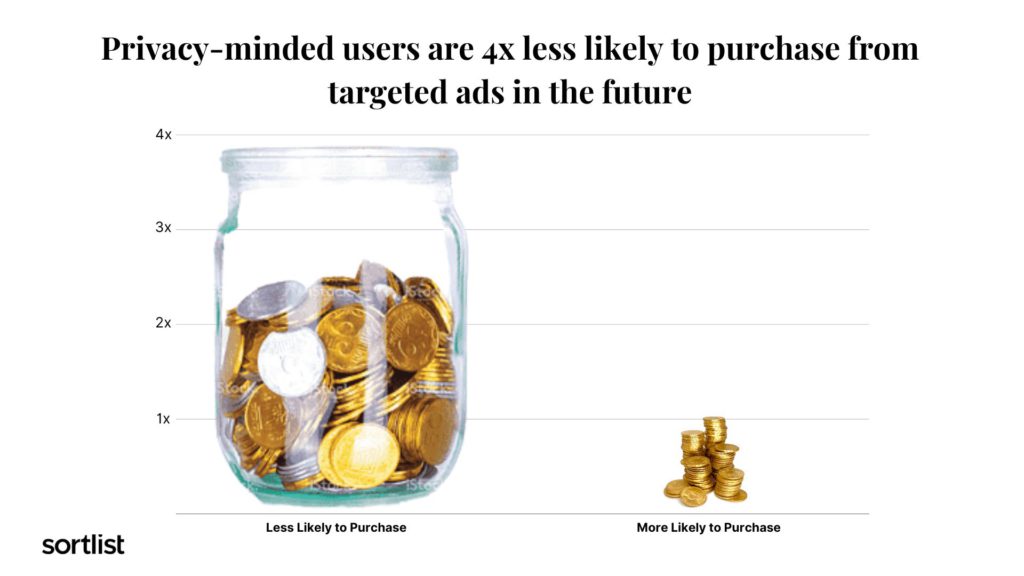
Our data also shows that the most privacy-conscious group is women aged 25-34. 29% of these privacy-conscious respondents are from the UK.
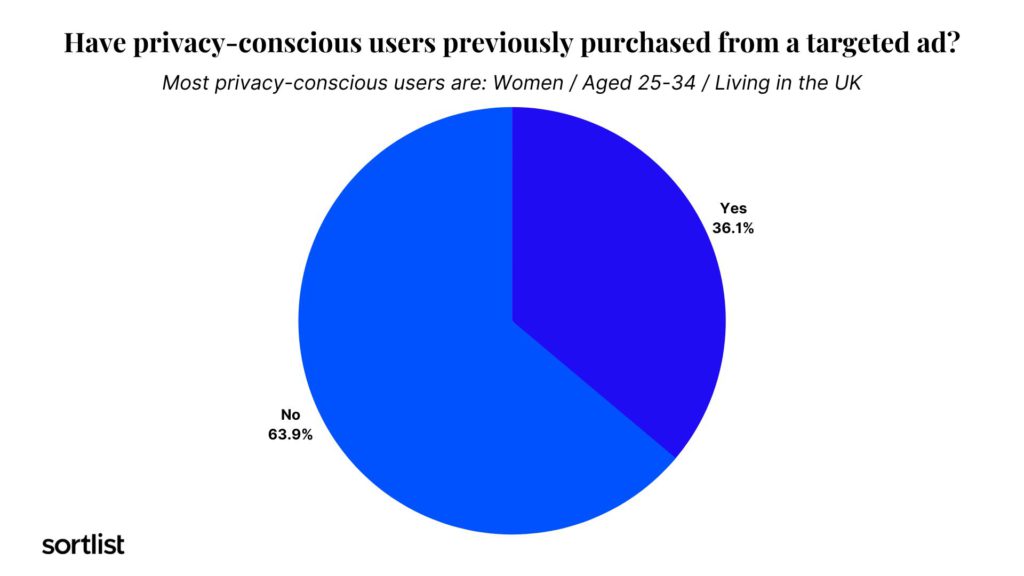
This segment would not be comfortable sharing personal data for personalised ads because they don’t like being targeted by companies, and that most of them (63.89%) have never bought something from hyper-targeted ads.
Our latest survey reveals that the youngest users are most likely to react negatively to targeted ads that make them ask, “Is my phone listening to me for ads?”
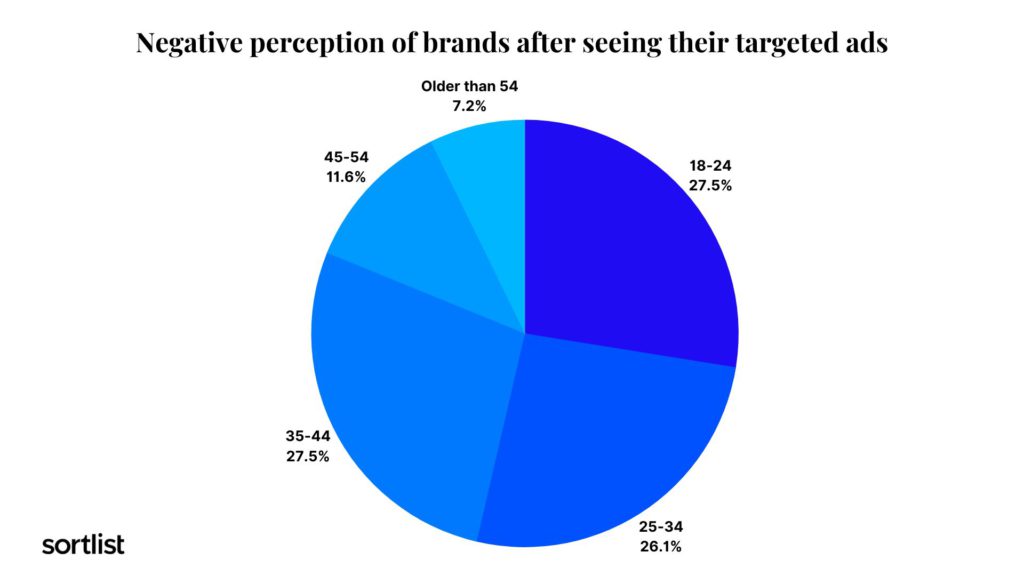
Most users felt “surprised” by how fast companies targeted them with ads (32.6%) and that their privacy was “invaded” (22.4%). However, only 14% of those 18-24 years old felt privacy violation.
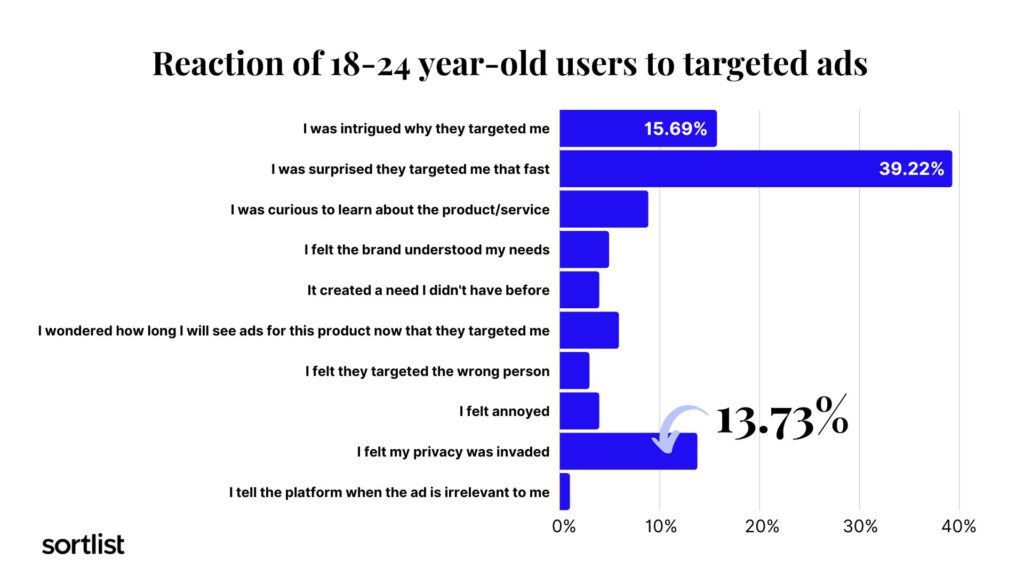
In fact, the 18-24 segment is 58% more likely than the rest to purchase something from a highly targeted ad.
An 18-24 year-old is 47% less likely to purchase if they had a negative brand perception following a highly targeted ad.
And still, the 18-24 segment likely to purchase from targeted ads is 73% more likely to have seen those ads on TikTok as compared to every other generation combined.
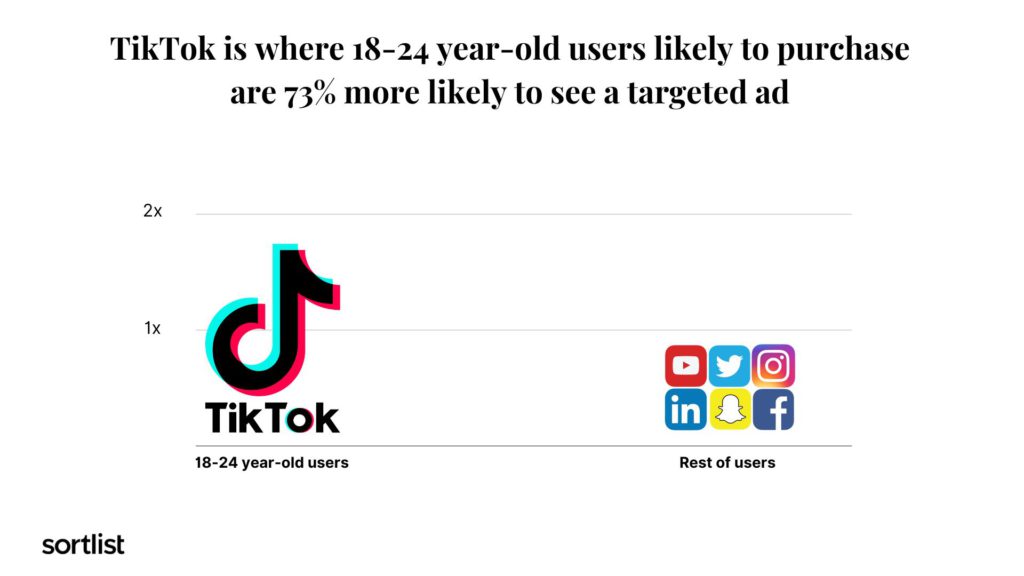
That may have something to do with the platform’s engagement. According to DreamLocal, 49% of TikTok users purchase products that have been reviewed or advertised there.
This is the group for which privacy means a lot more: the majority (37.8%) don’t like targeted ads because they feel their privacy is violated.
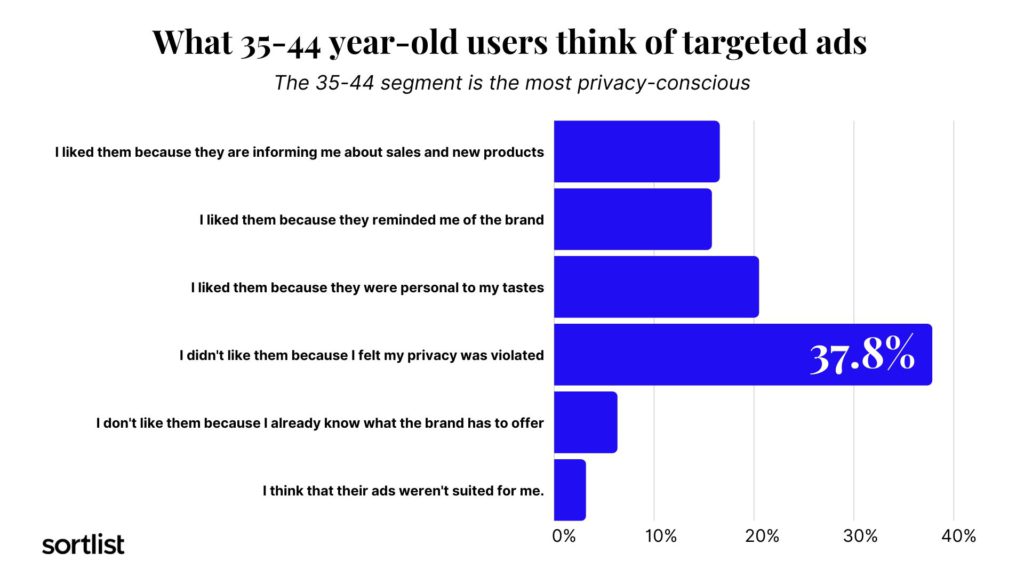
That number goes up by almost half when we look at the users in that group that have a negative brand perception: 63.16% point to privacy as their main concern.
These are the same users that have never bought anything from a targeted ad (89.58%).
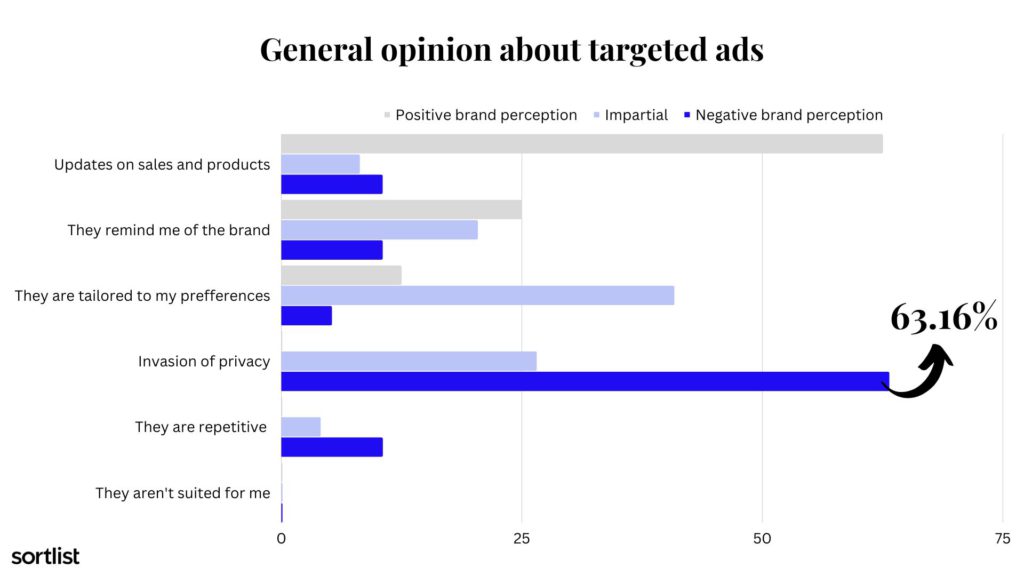
Of all users, those aged 54 and older are 2x more likely to perceive a brand positively following a targeted ad.
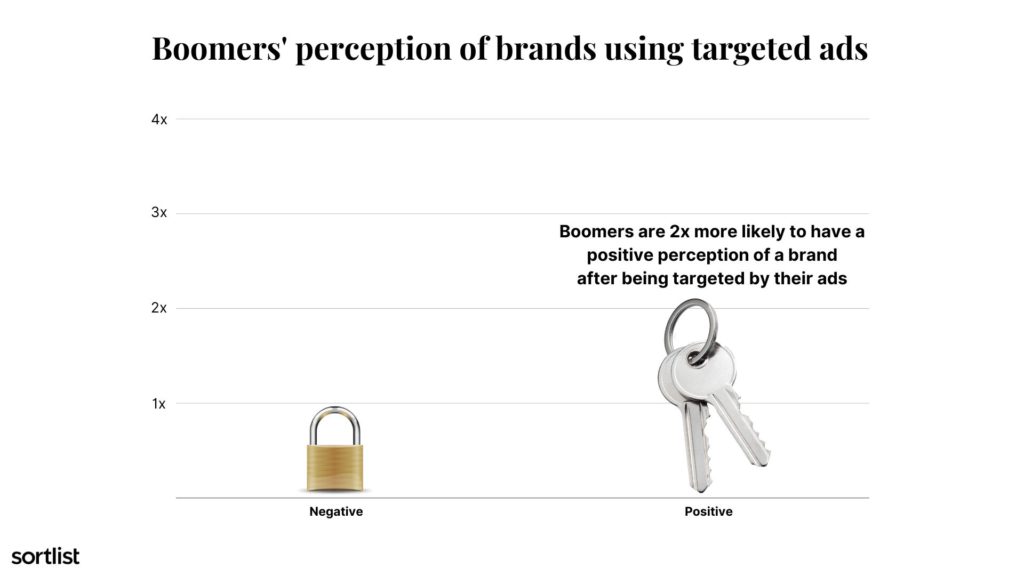
The main reactions to targeted ads from this age group is that they felt “surprised to be targeted so fast” and “curious to learn more” about the product or service being advertised.
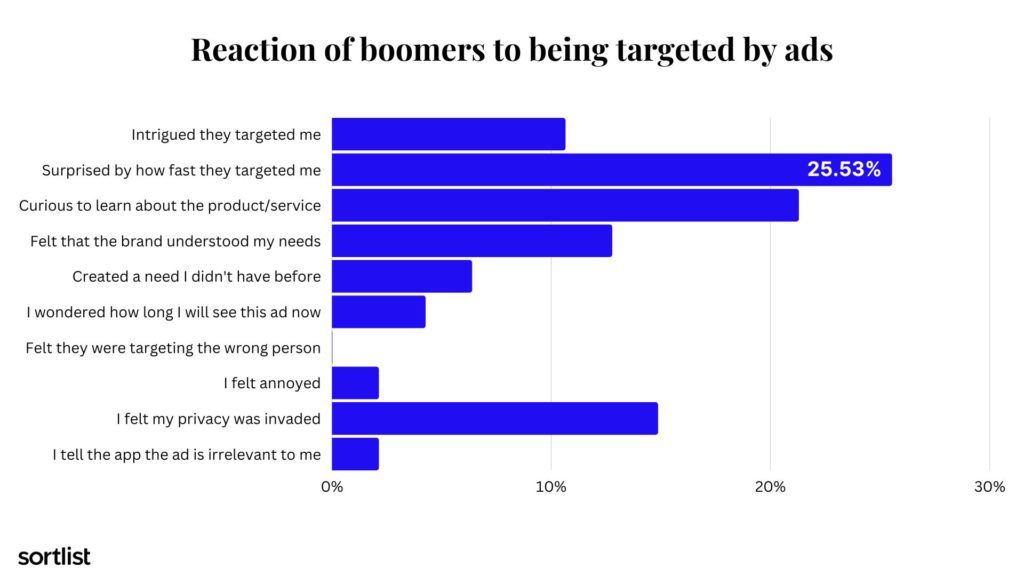
Users 54 years and older are also 46% less likely to be privacy-minded, as compared to the other age segments in our survey.
Since women are the most privacy-minded group in our survey, it made sense to look at how likely they were to have purchased something from a targeted ad in the past.
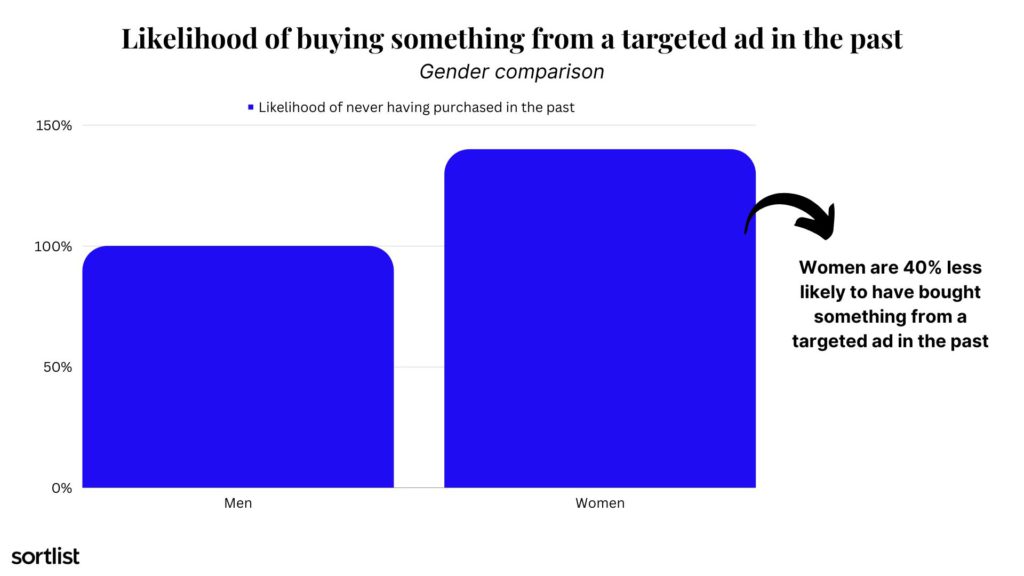
As mentioned, women are much more privacy-focused than men: 41.44% said they felt their privacy was violated, while only 31.73% of men thought so.
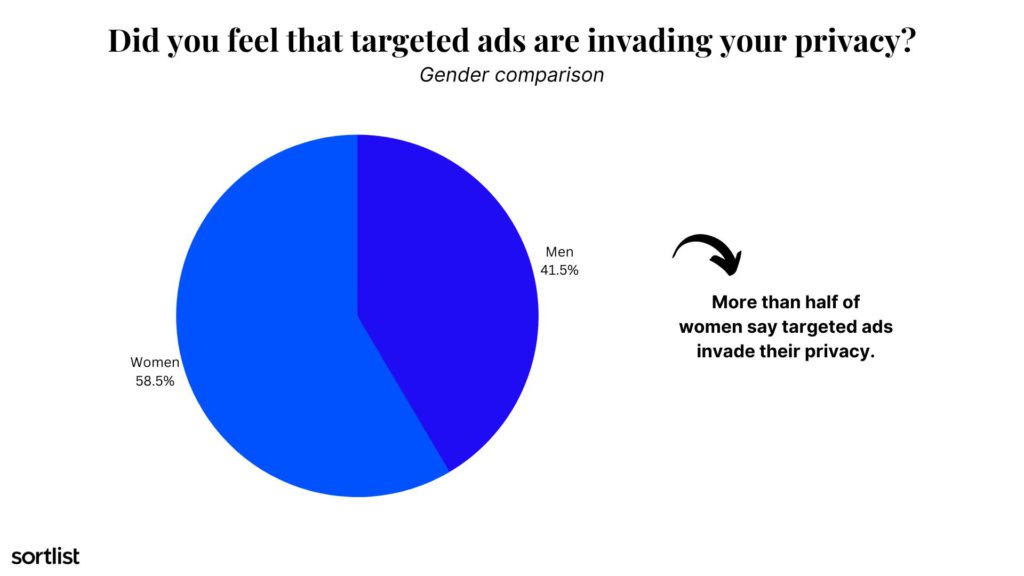
Perhaps more shockingly, when asked whether they felt comfortable sharing personal data for personalised ads, most women said no—one in every five (19.86%) do not like to feel “targeted by companies.”
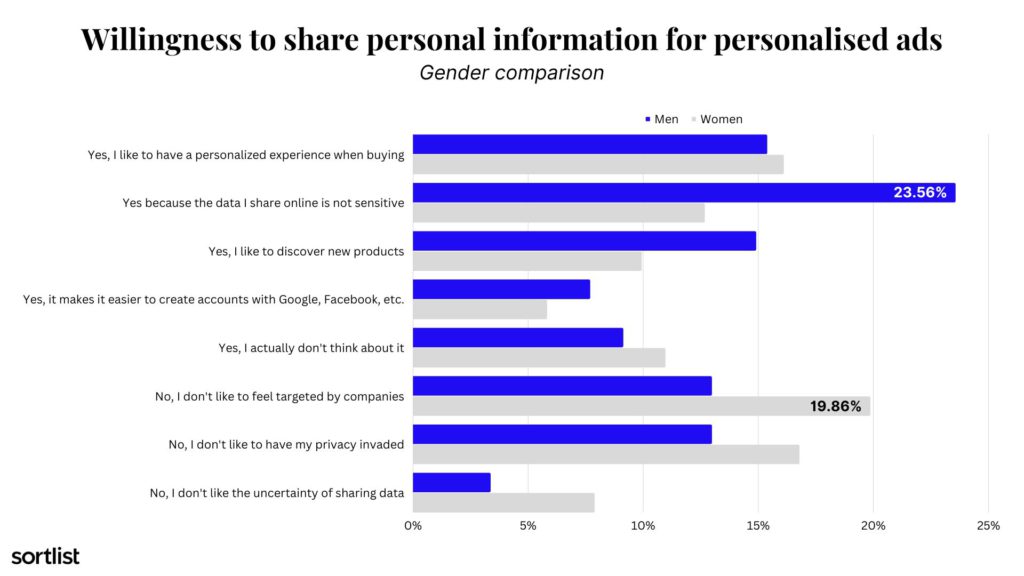
In contrast, the majority of male respondents (23.56%) do not mind sharing their personal data because they “do not think it’s sensitive.”
This is corroborated by a study about gender differences in privacy behaviour, which showed that women were less willing than men to give up more sensitive information.
Users are 3x more likely to have bought a B2B product or service from a targeted ad in the past, compared to B2C ads.
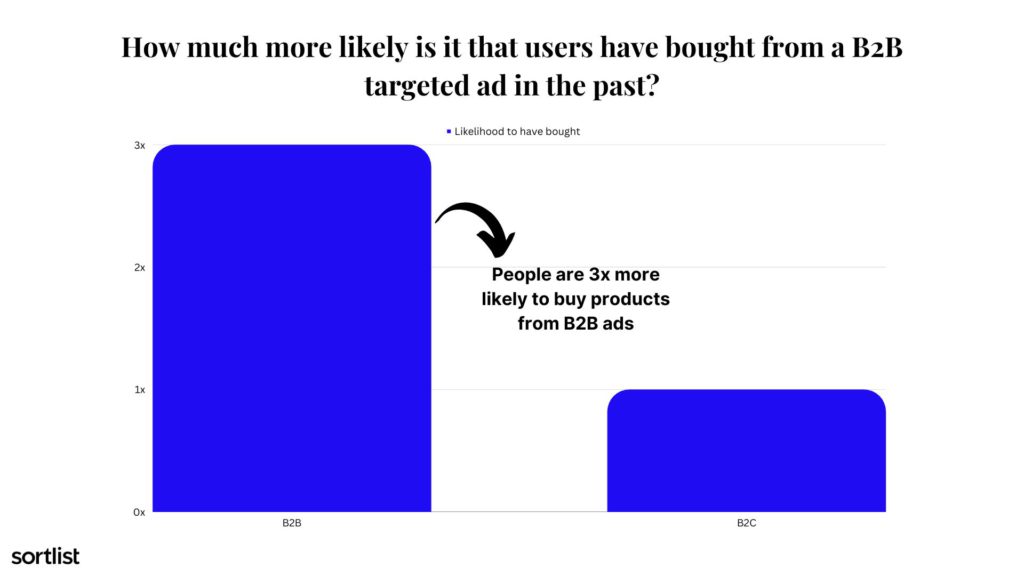
More than that, those served with B2B ads are 90% more likely to perceive a brand positively.
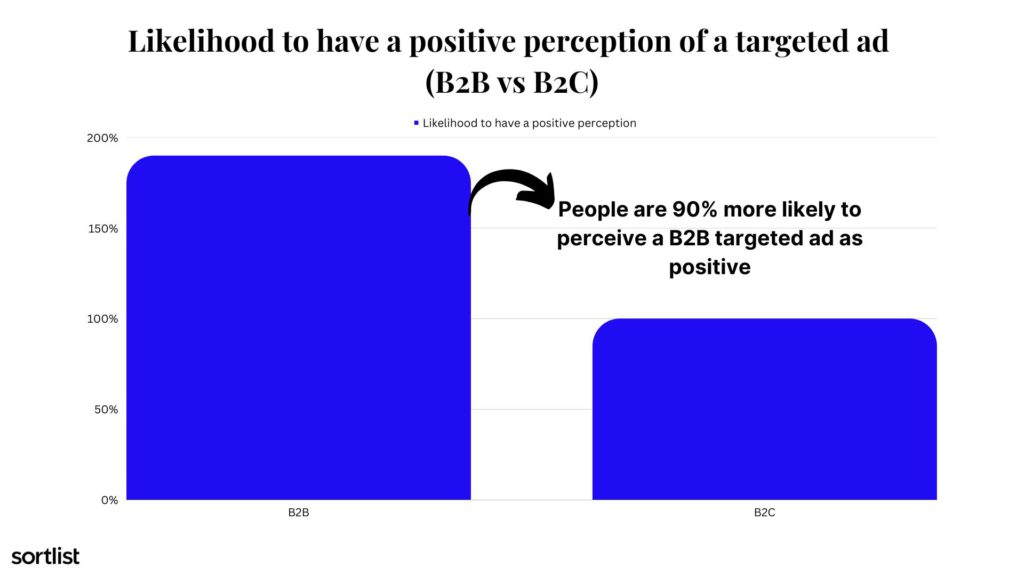
In contrast, people are 126% more likely to perceive B2C ads negatively.
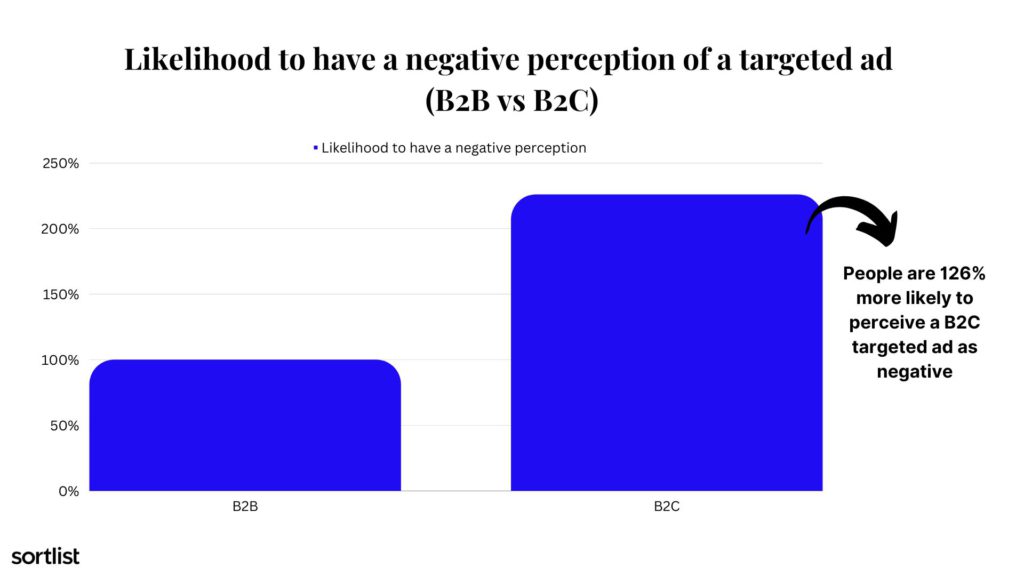
The B2B ads that are shown to most users are Beauty & Cosmetics ads.
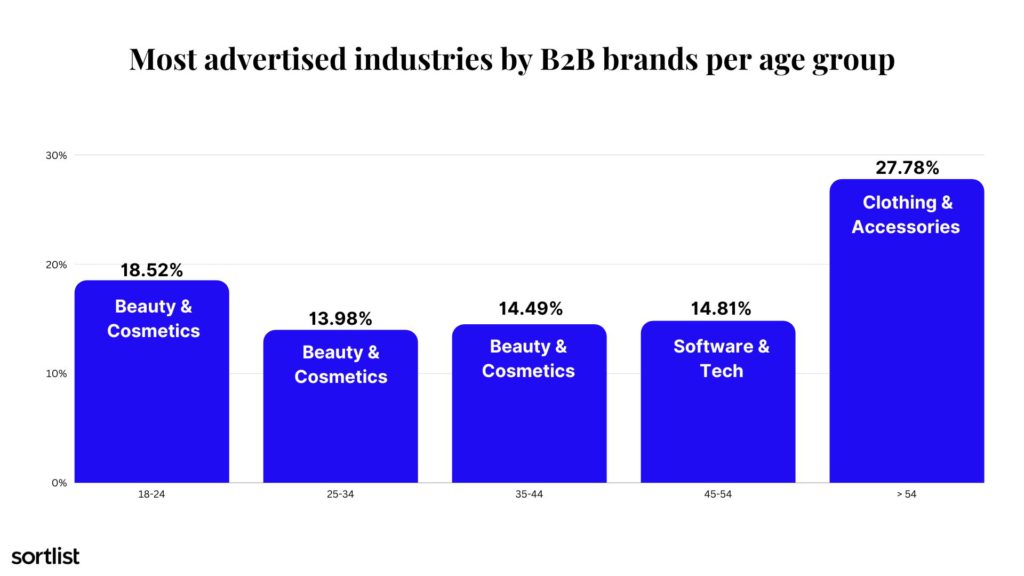
While companies keep adapting their hyper-targeted ads to their audiences, they find themselves still fighting the privacy battle with their users, who grow ever more conscious about how they are being followed throughout the web and just how much information they are willing to give.
Still, the Sortlist survey shows that some brands and their hyper-targeted ads do not have that problem. This is especially true for those targeting boomers, who do not seem to mind much about sharing their data for personalised ads or whether their phone is, after all, listening in.
The study was conducted between December 19th and December 23rd, 2022, among 500 users in 6 countries: the United Kingdom, Belgium, Germany, Spain, the Netherlands, and France. In the study, we asked general users about their feelings towards targeted ads and purchase behaviour, especially after being served ads that made them think their phones were listening to them. The responses are anonymous.
The Sortlist Data Hub is the place to be for journalists and industry leaders who seek data-driven reports from the marketing world, gathered from our surveys, partner collaborations, and internal data of more than 50,000 industries.
It is designed to be a space where the numbers on marketing are turned into easy-to-read reports and studies.